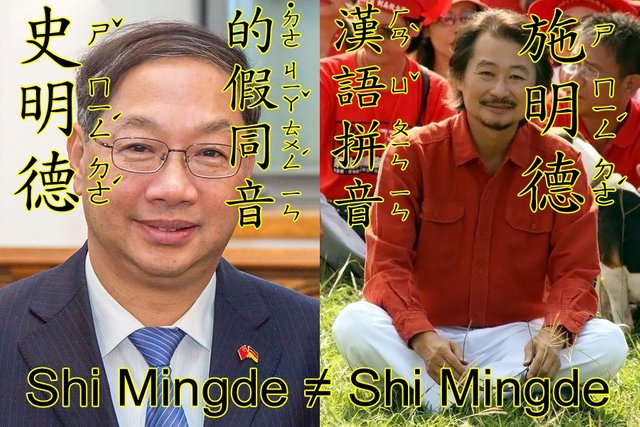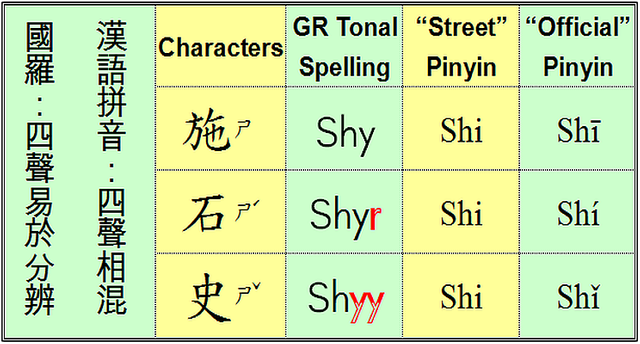
In China, tiny Pinyin diacritics mark tones, but foreign media can't show tones (plain ASCII [a-z, A-Z, 0-9 and simple punctuation] can't show diacritics). When spelled in ASCII-only “Man-in-the-Street” Pinyin (“Street” Pinyin for short), all four tones are blended together, thus creating a great deal of unnecessary confusion when dealing with people’s names. Omitting tones in Chinese is similar to omitting or blending vowels in English: this would definitely cause problems.
For example, the PRC Ambassador to the German Federal Republic is 史明德 (spelled Shǐ Míngdé in “official” Pinyin). Taiwan’s most famous political activist is 施明德 (spelled Shī Míngdé in “official” Pinyin).
Imagine the confusion and embarrassment that would result if the PRC ambassador (Shi Mingde in “Street” Pinyin) was erroneously refused entry to a country that had banned the Taiwan activist (also Shi Mingde: both men seem to bear the same name)!
Such problems could be easily eliminated if Chinese names were unambiguously marked. In #GRTonalSpelling 史明德, the ambassador's name, would be spelled Shyy Mingder (the double -yy- is a reminder that the 3rd tone is a LONG low tone, and the -r is a reminder that -der is a rising tone).
施明德, the political activist's name, would be spelled Shy Mingder (the single -y, the default unmodified form in GR Tonal Spelling, is a reminder that the 1st tone is a high level tone).

The “Street” Pinyin spelling Shi corresponds to four completely unrelated family names spelled Shy, Shyr, Shyy and Shyh in GR Tonal Spelling (1st ~ 4th tone). Blending these names together in foreign documents helps confirm the bigoted idea that “All Chinese look alike. Even their names are almost the same!”
Like it or not, toneless (= Man-in-the-Street) Hanyu Pinyin in foreign media is indirectly responsible for feeding anti-Chinese prejudice!
Hanyu Pinyin is a great tool when used correctly for annotating characters in Chinese dictionaries and textbooks. “Street” Pinyin, on the other hand, creates inconvenience and indirectly feeds racial prejudice.
60 years after it was created, it should be obvious that toneless Hanyu Pinyin is misleading and thus it is a less than ideal tool for spelling Chinese names in foreign documents!
[Image of the PRC Ambassador to the German Federal Republic is 史明德: Raimond Spekking / CC BY-SA 4.0; Other image is Public Domain]
[This is a slightly revised version of a recent LinkedIn post: https://www.linkedin.com/pulse/man-in-the-street-pinyin-causes-problems-robert-matthews/]